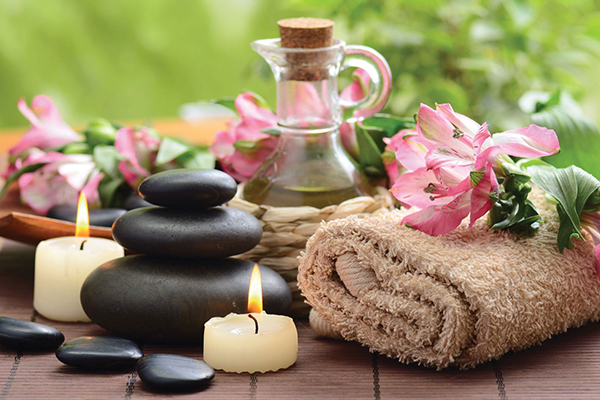
Complementary therapy is a variety of treatments used alongside conventional medicines and treatments. It can be known in different terms such as alternative therapy, holistic therapy, and complementary medicine. Ongoing research exists which explores the role of complementary therapies in medical disorders of varying parts of the human body. Lower back pain is an issue which so many individuals may struggle with on an ongoing basis. One example of this research is how acupuncture can be an effective treatment for relief of short term back pain (1).
Chiropractors, physical therapists, and osteopaths are just three health professionals who can offer complementary therapies in addition to traditional methods. Below we will explore some reasons as to why complementary therapy is so popular.
- Helps to cope with stress and promote relaxation.
One of the more positive aspects of using complementary therapies is diversity. Many therapies concentrate in reducing stress in body and mind. Furthermore, they concentrate on aiming to produce a feeling of relaxation and stability that can last from hours to weeks. This can be extremely beneficial for oncology patients or individuals living with harsh, ongoing conditions which require medical treatment (2). Health care teams can often be open an integrative medicine approach, which involves introducing some therapy as part of overall cancer care.
- Gain a closer relationship with yourself and your body
Complementary therapies generally encourage individuals to become more in tune with their body. In turn, people can gain more autonomy and independence over presenting issues such as chronic conditions. As complementary therapies aim to get to the root or core problem, they encourage you to go on a journey of the self to explore the core problem. Solutions can often be reached in complementary therapy when an individual has been searching for months to years for something effective.
For example, while exploring different types of therapies; people may realise that coping with anxiety is easier to do when learning how to breathe properly. Using our five senses to explore how the mind and body responds to different therapies can be hugely beneficial.
- Portable and safe
Unlike Western medicine, which may require you to carry various medications and equipment around, many complementary therapies can be practiced safely by oneself and without physical tools. For example, breathwork as a complementary therapy can be accessed in your own time and space – at home, while driving, moving, or travelling around.
- Large degree of choice
The number of complementary therapies that exist in the world is expansive. Holistic health encompasses movement, stress management, diet, and sleep. Many other forms of complementary therapies exist aside these pillars including:
Naturopathy, Acupuncture, Breathwork, Energy activation, Osteopathy, Aromatherapy, Hypnotherapy, Reflexology, Herbal Medicine, Crystal Healing, Sound Healing, Massage Therapy.
Due to this abundance of choice, it is helpful to try many different complementary therapies before finding the one that aligns and resonates best with you and your body. It is advisable that you use a complementary therapy directory when searching for a complementary therapist as they have robust processes for verifying therapists.
- Prevention
Complementary therapies as part of holistic care puts great emphasis on preventing symptoms and health problems before they develop as opposed to after. Learning how to nurture and look after your mental and physical health in due time creates strength, resilience, and self-compassion in your internal system. By caring for all three aspects of your being (mind-body-spirit), you can prevent symptom attacks rather than treating the symptoms with medication when they arise.
Additionally, trying complementary therapies can be useful if you are on a waiting list for treatment, but you need to start managing your symptoms quickly.
- A natural remedy
Some individuals may find that they experience side effects from pharmaceutical drugs, including fatigue, nausea, vomiting, gastrointestinal upset, weight loss and mood changes. More people are starting to explore natural treatments such as meditation and yoga to manage their symptoms and avoid or reduce the side effects that can come with modern western medicine.
Conclusion
Overall, complementary medicine can be a fantastic addition to empowering and maintaining a healthy body and mind. Whether individuals choose to explore this area for chronic disease or merely to manage and prevent stress – complementary medicine has something to offer everyone. It goes without saying that in times of emergency, conventional treatments in an emergency department are always the priority. However, exploring complementary therapy for conditions that develop over time because of poor diet, stress, smoking and lack of exercise can be safe, cheap, and more effective than solely using pharmaceutical treatments.
Resources
- Issac & Katz (Rheumatology sixth edition, 2015
- National Cancer Institute, 2022